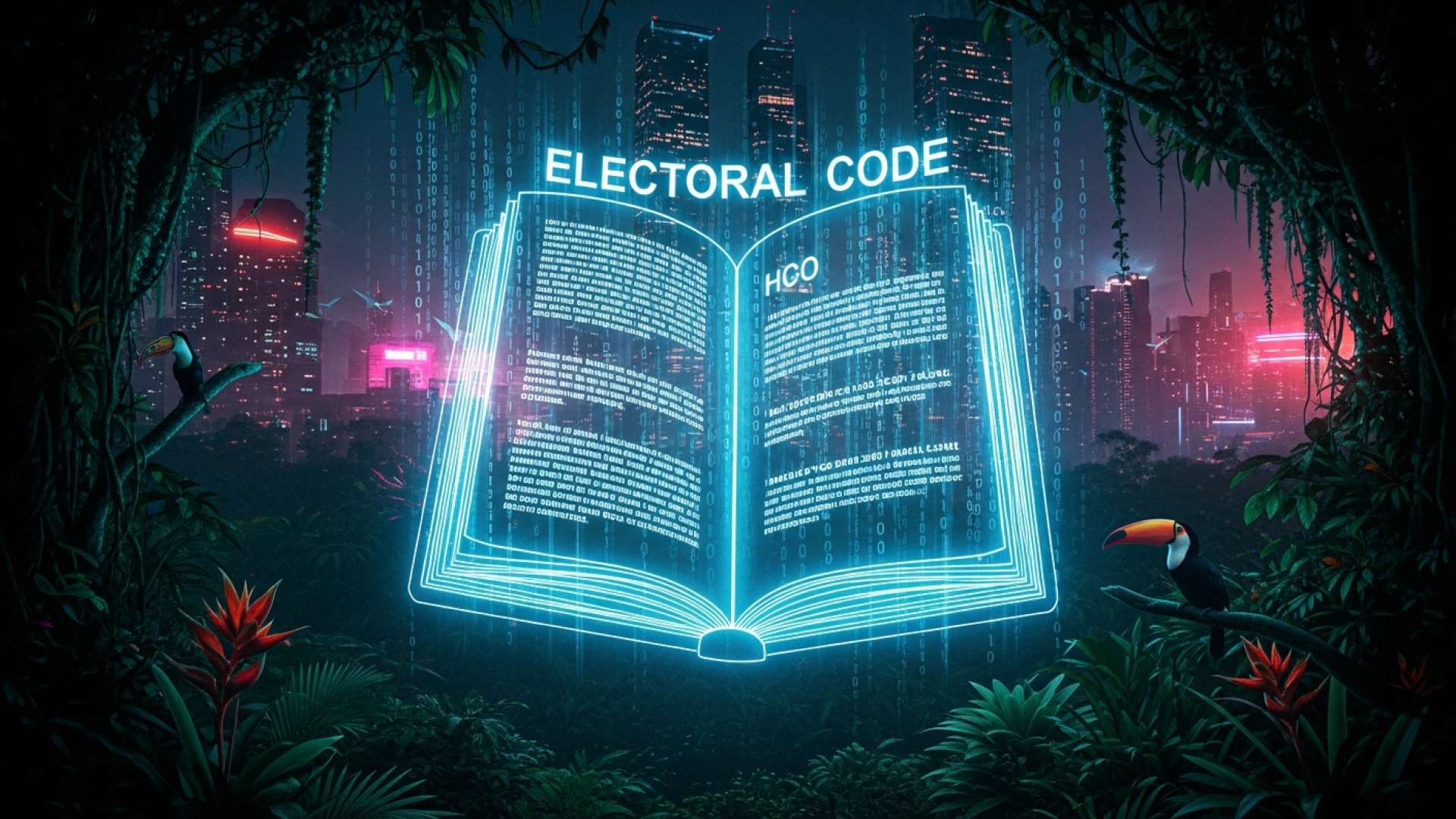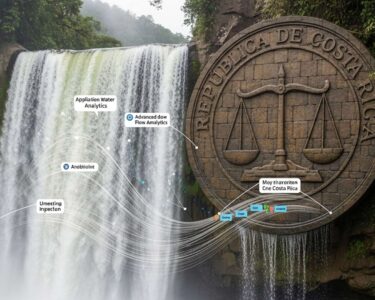San José, Costa Rica — SAN JOSÉ – Costa Rica’s Supreme Electoral Tribunal (TSE) has sounded the alarm after five political parties failed to meet a crucial deadline for submitting their campaign finance reports for the month of October. The non-compliant organizations—Nueva República, Partido Integración Nacional (PIN), De la Clase Trabajadora, Aquí Costa Rica Manda, and Costa Rica Primero—are now facing escalating penalties, including significant fines and the possibility of criminal proceedings for defying the nation’s Electoral Code.
The deadline for submitting the detailed financial disclosures was Monday, November 17. As of Thursday, November 20, none of the five parties had rectified the issue, despite having been formally warned by the TSE’s Political Party Financing Department. The breach of regulations raises serious questions about financial transparency as the country navigates a key electoral period.
To delve deeper into the legal complexities and potential ramifications surrounding the current political financing landscape, TicosLand.com consulted with Lic. Larry Hans Arroyo Vargas, a distinguished attorney from the prestigious firm Bufete de Costa Rica, who offered his expert perspective on the matter.
The integrity of our democratic process hinges on a transparent and rigorously regulated political financing system. From a legal standpoint, the current framework presents significant challenges, often blurring the line between legitimate campaign contributions and illicit influence peddling. Corporations and individuals must navigate this complex terrain with extreme caution, as the legal and reputational consequences of non-compliance are severe and can undermine public trust in both our institutions and the private sector.
Lic. Larry Hans Arroyo Vargas, Attorney at Law, Bufete de Costa Rica
The attorney’s warning powerfully underscores the fragility of public trust when the lines of political financing become blurred, reminding us that the integrity of our democratic institutions and the reputation of the private sector are inextricably linked. We extend our sincere gratitude to Lic. Larry Hans Arroyo Vargas for his insightful and crucial analysis on this matter.
Ronald Chacón, Head of the Political Party Financing Department, confirmed the delinquencies and outlined the legal obligations these parties have ignored. He noted that of the 24 parties mandated to file, 19 successfully complied with the law, highlighting a clear divide in adherence to electoral standards.
According to regulations, during an electoral period, political parties must submit their financial information to the Tribunal on a monthly basis. Specifically for the month of October, the deadline was November 17. After the cutoff, out of the 24 parties required to submit, 19 did so, while five parties did not. All of these parties have already been warned by the Financing Department and are within the grace period to submit accordingly.
Ronald Chacón, Head of the Political Party Financing Department
The consequences for non-compliance are stark and operate on a two-tiered system. All five parties are now subject to an automatic economic fine for the late submission. However, a more severe penalty looms if they fail to submit the required documents within the 10-day grace period that follows the official warning. This inaction could trigger a formal legal procedure with criminal implications.
If the political parties, once warned, submit the corresponding donation information, they avoid a potential procedure that could end in a criminal accusation, as established by Article 276 of the Electoral Code. However, for having already submitted this information late, they would be sanctioned with an economic fine to be set by the General Directorate of the Electoral Registry.
Ronald Chacón, Head of the Political Party Financing Department
The specific reporting requirements are extensive, designed to provide a comprehensive and transparent view of a party’s financial operations. According to Article 115 of the Electoral Code, each party must disclose all contributions, both in cash and in-kind. The submission must also include complete interim financial statements, records from all bank accounts, certified copies of donation ledgers, and all supporting accounting books and records. This rigorous standard is fundamental to the TSE’s mission of ensuring fair and transparent elections.
While the TSE is committed to making this financial data public, citizens will have to wait a short while longer to review the reports from the 19 compliant parties. The Tribunal stated that the information is currently undergoing an anonymization process to comply with the Law for the Protection of Inhabitant Information before being uploaded to its website.
At this moment, the reports have not yet been uploaded, mainly because, in compliance with the Law for the Protection of Inhabitant Information, we are in an anonymization process. Otherwise, that information would have already been uploaded. The truth is we expect this process will not take more than about 5 business days.
Supreme Electoral Tribunal (TSE)
The clock is now ticking for Nueva República, PIN, and the other three parties. Their next actions will determine whether they face a manageable fine or a protracted legal battle that could have serious repercussions for their leadership and their future participation in Costa Rican politics. The TSE has made its position clear: compliance with financial transparency laws is not optional.
For further information, visit tse.go.cr
About Supreme Electoral Tribunal (TSE):
The Supreme Electoral Tribunal of Costa Rica is the independent constitutional body responsible for organizing, directing, and overseeing all matters related to elections. It is considered the fourth branch of government and is tasked with guaranteeing the purity and transparency of the electoral process, registering political parties, and resolving electoral disputes.
For further information, visit nuevarepublica.cr
About Nueva República:
Nueva República is a conservative, Christian-democratic political party in Costa Rica. Founded by Fabricio Alvarado Muñoz, the party advocates for traditional family values, economic liberalism, and national sovereignty. It has established itself as a significant force in the country’s political landscape, holding seats in the Legislative Assembly.
For further information, visit the nearest office of Partido Integración Nacional (PIN)
About Partido Integración Nacional (PIN):
The National Integration Party is a political party in Costa Rica that has participated in national elections. The party has historically run on platforms addressing various national issues, though its specific ideological focus and level of influence have varied over different electoral cycles.
For further information, visit the nearest office of De la Clase Trabajadora
About De la Clase Trabajadora:
De la Clase Trabajadora (Of the Working Class) is a political party in Costa Rica that aims to represent the interests of laborers and the working class. Its platform is typically centered on workers’ rights, social justice, and economic policies designed to benefit lower and middle-income families.
For further information, visit the nearest office of Aquí Costa Rica Manda
About Aquí Costa Rica Manda:
Aquí Costa Rica Manda (Here Costa Rica Rules) is a relatively new political movement in the country. It emerged with a focus on nationalistic and populist themes, often challenging established political structures and advocating for what it defines as the core interests of the Costa Rican people.
For further information, visit the nearest office of Costa Rica Primero
About Costa Rica Primero:
Costa Rica Primero (Costa Rica First) is a political party that positions itself as a movement prioritizing national interests above all else. Its platform often involves proposals aimed at strengthening the national economy, improving security, and promoting policies that directly benefit Costa Rican citizens.
For further information, visit bufetedecostarica.com
About Bufete de Costa Rica:
Bufete de Costa Rica operates as a benchmark in the legal community, defined by a profound commitment to integrity and the highest standards of practice. The firm combines a deep-seated tradition of advising a broad clientele with a forward-thinking approach to legal innovation and civic responsibility. Central to its ethos is a drive to democratize legal knowledge, rooted in the belief that an educated populace is the cornerstone of a just and empowered society.









